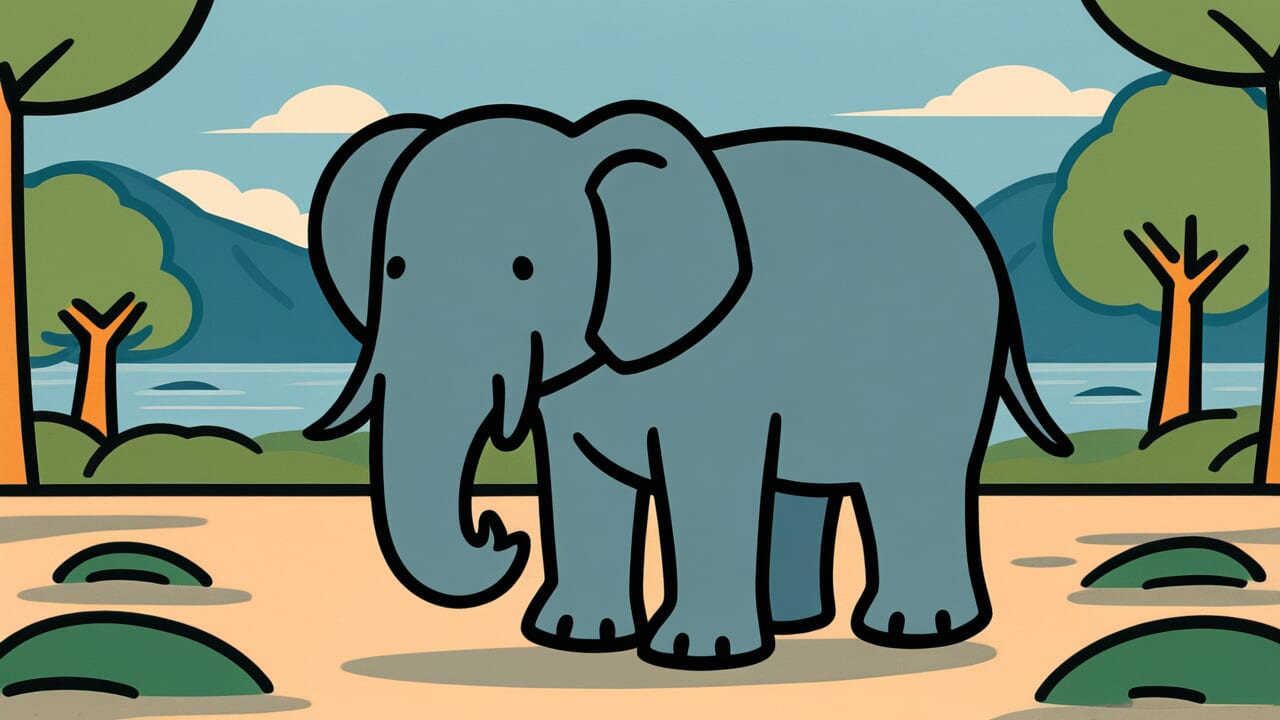How to Read “In great peace, there are no elephants”
たいへいぞうなし
Meaning of “In great peace, there are no elephants”
“In great peace, there are no elephants” means that in peaceful times, there is no place for heroes and warriors to show their abilities.
During times of war, people with military skills are highly valued. They can fully demonstrate their talents. But when peace continues, there are no enemies to fight and no crises to handle.
No matter how skilled a warrior or brave a hero might be, they have no opportunity to prove their worth.
This proverb describes situations where talented people cannot use their abilities because the times don’t favor them. Sometimes it’s used with irony to show that peace exists.
Peace is precious, but it can also be an unfortunate era for people with certain talents. This proverb captures that complex reality.
Today, people use it in business and organizations too. It describes how people skilled at crisis management often go unappreciated during calm periods.
Origin and Etymology
The exact origin of this proverb in historical texts hasn’t been clearly identified. However, we can learn interesting things from how the words are put together.
“Taihei” means a peaceful world. “Zo” (elephant) is used here to represent heroes and great warriors.
This use of “elephant” likely comes from ancient Chinese philosophy. In that tradition, heroes were seen as large and prominent like elephants.
Throughout history, elephants have symbolized extraordinary people because of their enormous size and strength.
This proverb emerged from Japan’s history of alternating between war and peace. During the Warring States period, heroes like Takeda Shingen and Uesugi Kenshin were active.
But when the Edo period brought lasting peace, warriors had no place to display their military prowess. In peaceful times, there simply are no battlefields where one can make a name.
This expression has been passed down through generations. It acknowledges the value of peace while also expressing the loneliness of heroes with nowhere to shine.
It captures the reality that different eras demand different types of people.
Usage Examples
- 会社が安定期に入ってから、あの切れ者の部長も太平象無しで出番が減ったな
- 彼は危機対応のスペシャリストだが、今は太平象無しで本来の力を発揮できていない
Universal Wisdom
“In great peace, there are no elephants” points to a deep contradiction in human society. Everyone wishes for peace, yet in peaceful times, certain talents become unnecessary.
This shows that human abilities don’t have absolute value. They only have meaning in relation to their time and environment.
A warrior who dominates the battlefield is just a strong person in peaceful times. Brilliant crisis judgment becomes useless when there are no crises.
This reality poses urgent questions. How should we live when our talents don’t match our era? How should society utilize diverse talents while maintaining peace?
Our ancestors left us this proverb not just to lament heroes’ misfortune. Rather, they wanted to teach us something deeper.
They wanted us to accept the harsh fact that required abilities change with the times. Even so, we must find the strength to discover our own value.
The happiness of peace and the complexity hidden within it. Understanding both sides is the first step toward building a mature society.
When AI Hears This
Peaceful society is actually a special state that defies the laws of the universe. According to the law of entropy in physics, all systems naturally move toward disorder.
Just as milk poured into coffee mixes on its own, order naturally breaks down.
Physically speaking, a peaceful state is a “low entropy state.” Many people cooperate, follow rules, and resources are properly distributed. This is highly ordered, which makes it unstable.
For example, a clean room will always get messy if left alone. Cleaning requires energy input to restore order.
From a complex systems science perspective, society is a system where countless elements interact. Maintaining peace requires constant energy input from many directions.
This includes education, diplomacy, economic policy, and law enforcement. If you neglect even one area, disorder spreads from there.
This follows the same principle as thermodynamics. An isolated system always moves toward maximum entropy, the most disordered state.
“In great peace, there are no elephants” proves that ancient people understood a scientific truth through experience. Peace doesn’t continue naturally.
It’s the product of effort to maintain order against physical laws. Peace isn’t an achievement but ongoing maintenance work.
Lessons for Today
This proverb teaches modern people to calmly assess how their talents match their era’s needs.
When you feel your abilities aren’t properly valued, it doesn’t necessarily mean you lack worth. Perhaps there’s simply no current situation where your talents can shine.
Looking at it another way, when times or circumstances change, your moment will surely come.
What matters isn’t lamenting peaceful times. Instead, develop new abilities suited to the current era.
People with crisis management skills can apply their experience to prevention and education. Those with fighting strength can transform it into protective power.
True strength lies in the flexibility to evolve yourself according to your environment.
And don’t forget this important point. Peaceful times are the happy state many people wished for.
When heroes aren’t needed, it means things are peaceful. You should also have the grace to accept days when your special talents aren’t required, with gratitude.



Comments